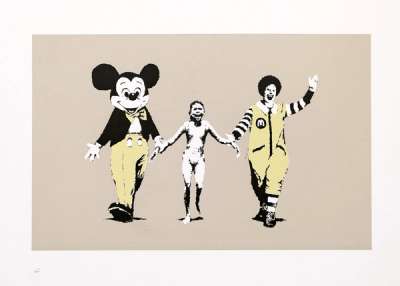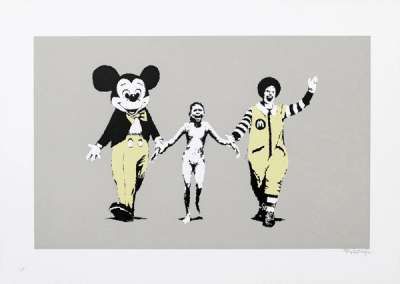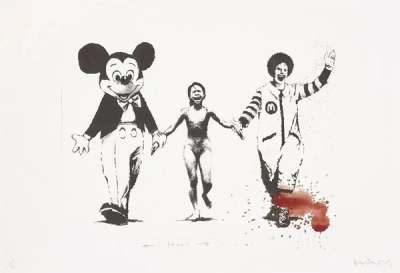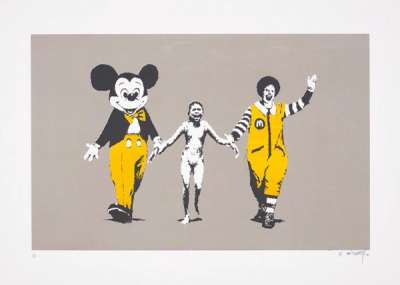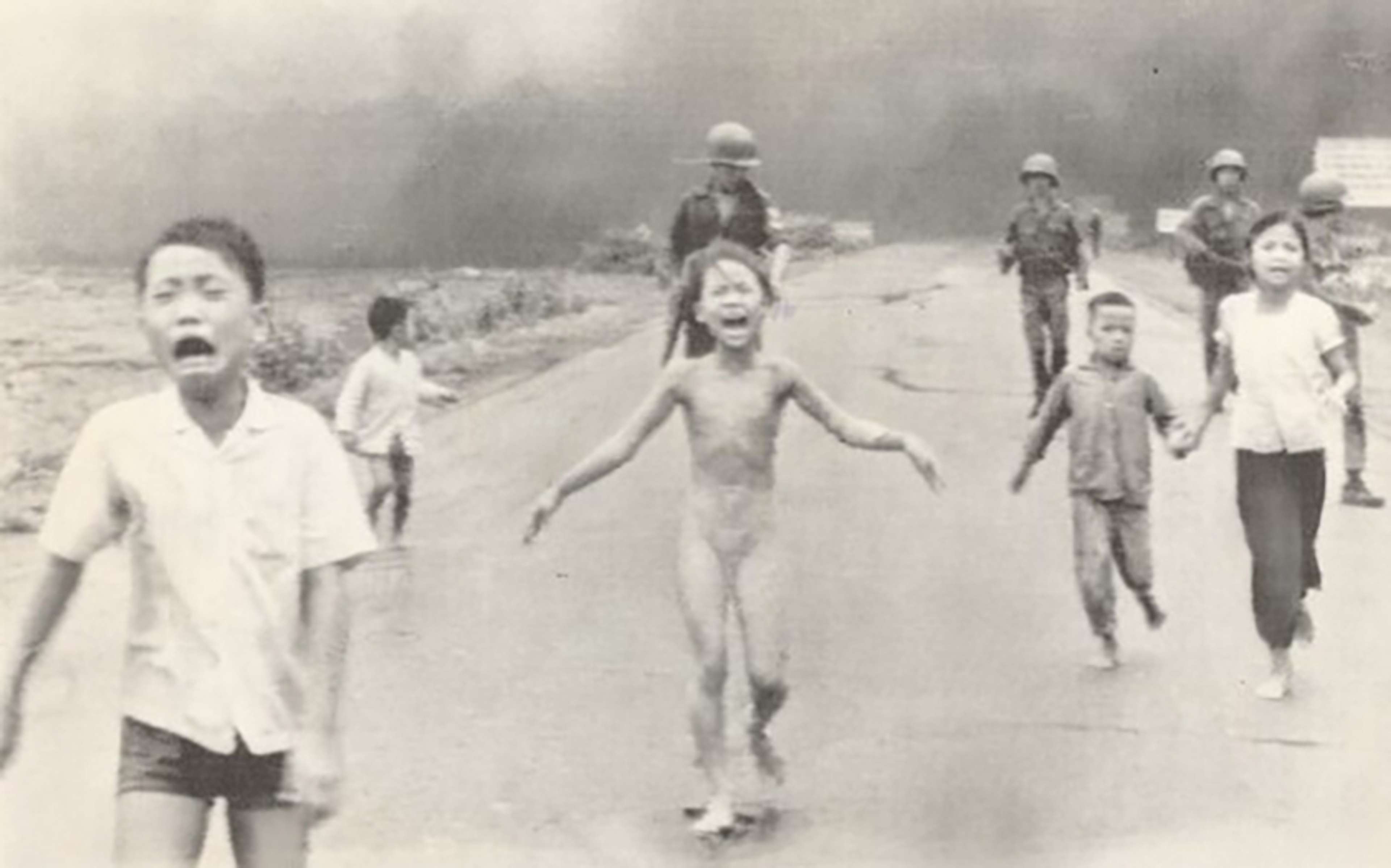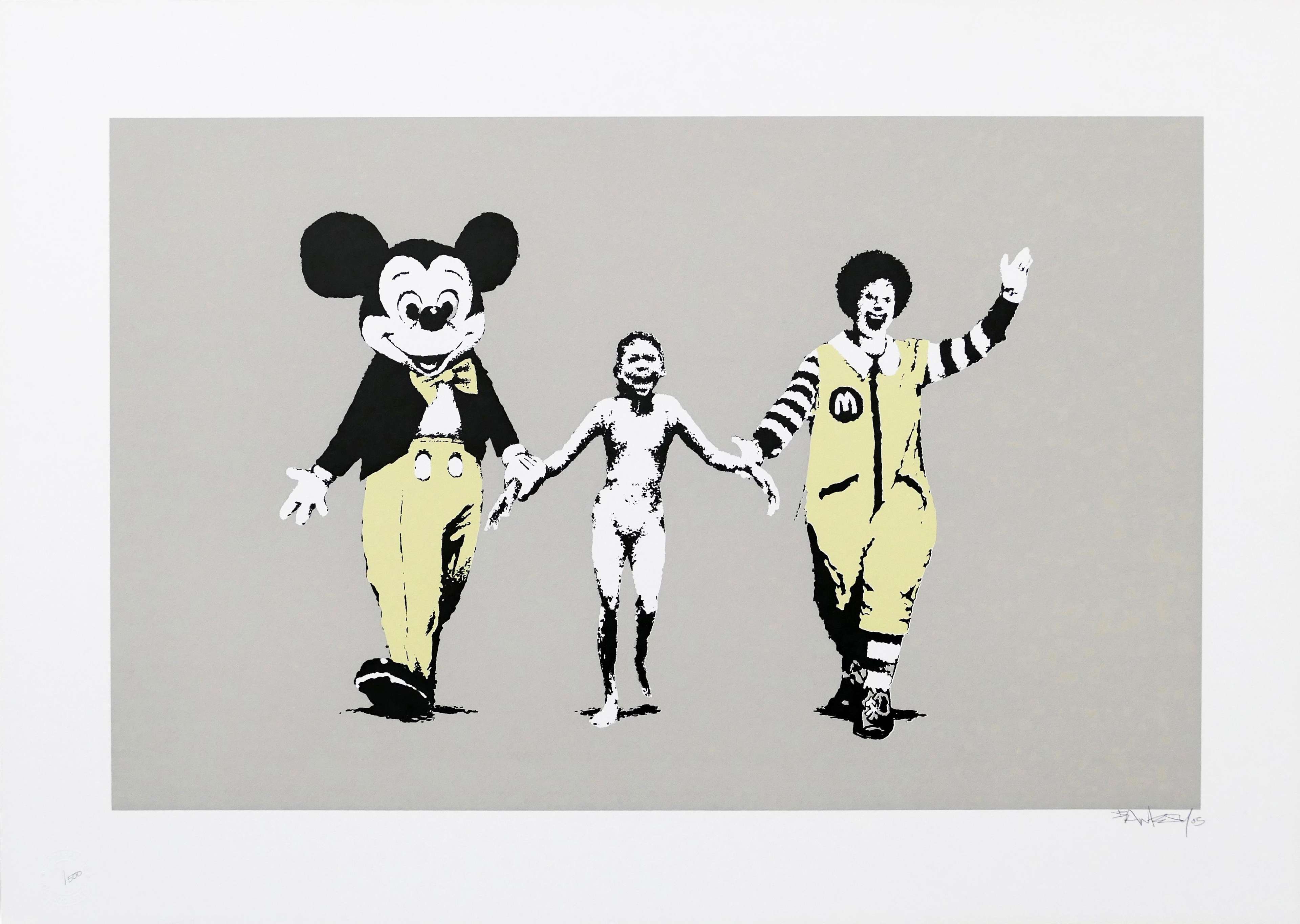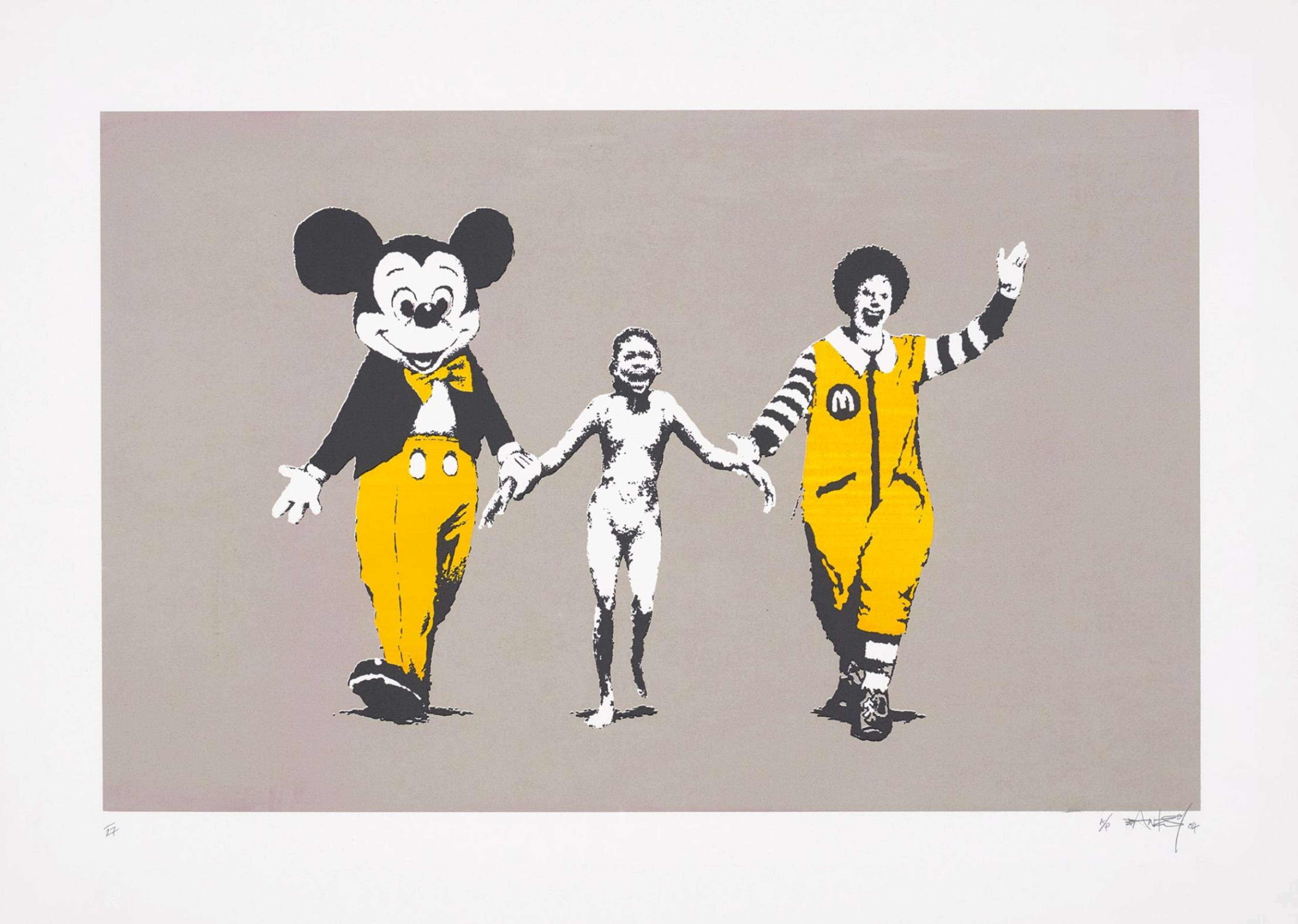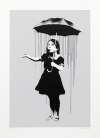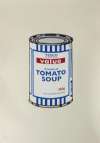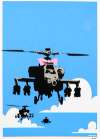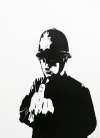Napalm
Banksy's disturbing work Napalm reworks a well-known photograph by photojournalist of the Vietnam War, Nick Ut, titled "The Terrors of War."In the original photograph, a young girl runs from her recently napalmed village. In Banksy's version, Mickey Mouse and Ronald McDonald have captured the child, still crying, by her arms.
Banksy Napalm For sale
Napalm Value (5 Years)
The Napalm series by Banksy features both signed and unsigned editions, which diverge significantly in value. Signed examples consistently command premiums, with hammer prices reaching up to £64488. Across the series, 116 total auction sales have been recorded, with an average annual growth rate of -0.76%. For collectors, edition type plays a pivotal role in value potential within this series.
Napalm Market value
Auction Results
| Artwork | Auction Date | Auction House | Return to Seller | Hammer Price | Buyer Paid |
|---|---|---|---|---|---|
 Napalm Banksy Unsigned Print | 15 Oct 2025 | Forum Auctions London | £6,800 | £8,000 | £10,000 |
 Napalm Banksy Signed Print | 29 Jul 2025 | International Art Centre | £12,325 | £14,500 | £17,000 |
 Napalm (Serpentine edition) Banksy Signed Print | 2 Sept 2021 | Forum Auctions London | £34,000 | £40,000 | £50,000 |
 Napalm (AP, orange) Banksy Signed Print | 21 Jan 2021 | Phillips London | £51,000 | £60,000 | £80,000 |
Sell Your Art
with Us
with Us
Join Our Network of Collectors. Buy, Sell and Track Demand
Meaning & Analysis
Also known as Can't beat that Feeling, Banksy’s disturbing Napalm print is a direct play on Nick Ut’s world-famous photograph, The Terrors of War.
Upon its first publication, The Terrors of War shook global audiences to the core with its shocking portrayal of Vietnamese children, who are depicted fleeing from a napalm blast that had just hit their home in the village of Trảng Bàng.
The focal point of the photograph is a nine-year-old girl named Phan Thi Kim Phuc. She is depicted naked, running in fear for her life alongside other children and soldiers of the Vietnamese Army. Despite suffering severe burns to her back, she survived the attack and now lives in Canada. She has since been the focus of a book entitled The Girl in the Picture by author Denise Chong, published in 1996. The year after its release, the photograph won both the Pulitzer Prize for Spot News Photography and the World Press Photo of the Year.
In Banksy’s reimagining of the famous image, Phan Thi Kim Phuc is positioned in the centre of the composition, flanked on either side by Mickey Mouse and Ronald McDonald: two cartoon-like characters representing two of the world’s most litigious corporations.
This juxtaposition is one of Banksy's most cutting and provocative social criticisms. The horror of the scene is twisted and intensified by the pair of beaming characters, seemingly unconcerned by her distress, forcing the viewer to question their benevolence. Are they saving her life or guiding her to her fate?
Prevalent symbols of American commercialism, Ronald McDonald and Mickey Mouse appearance in this print constitutes an attack on American consumer culture. They invite us to reflect on the dangers of capitalism and its impact on the general population, especially children, and call on us to denounce its overriding lack of humanism. Napalm is laced with a sense of socio-political issues such as power, violence and national identity, and their prevelance in America and the world over.
